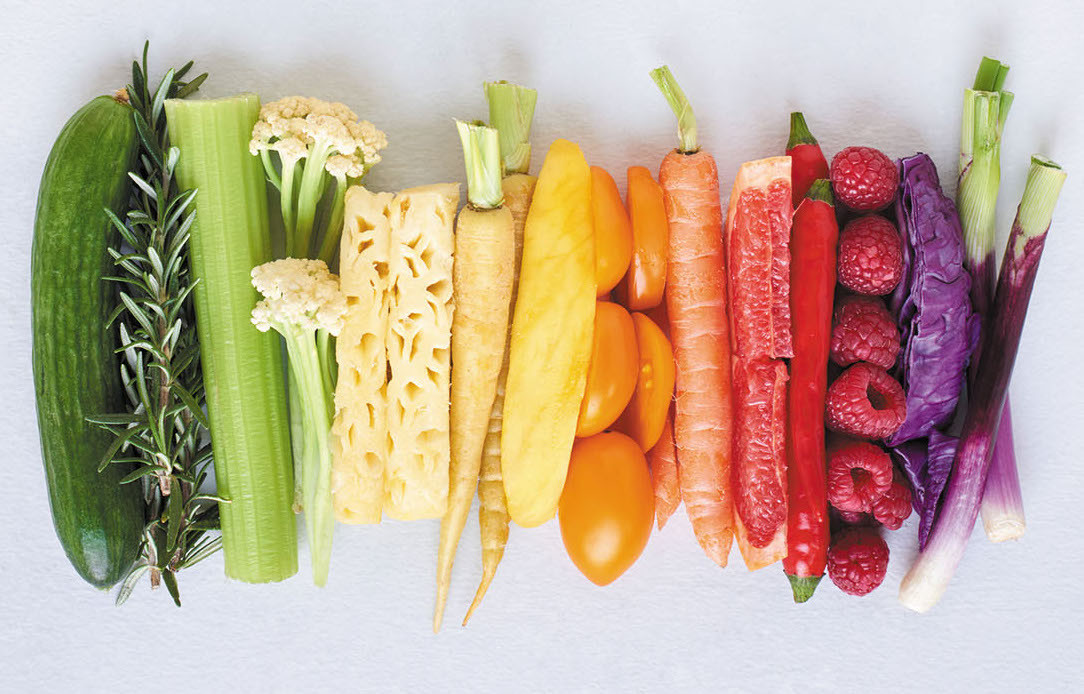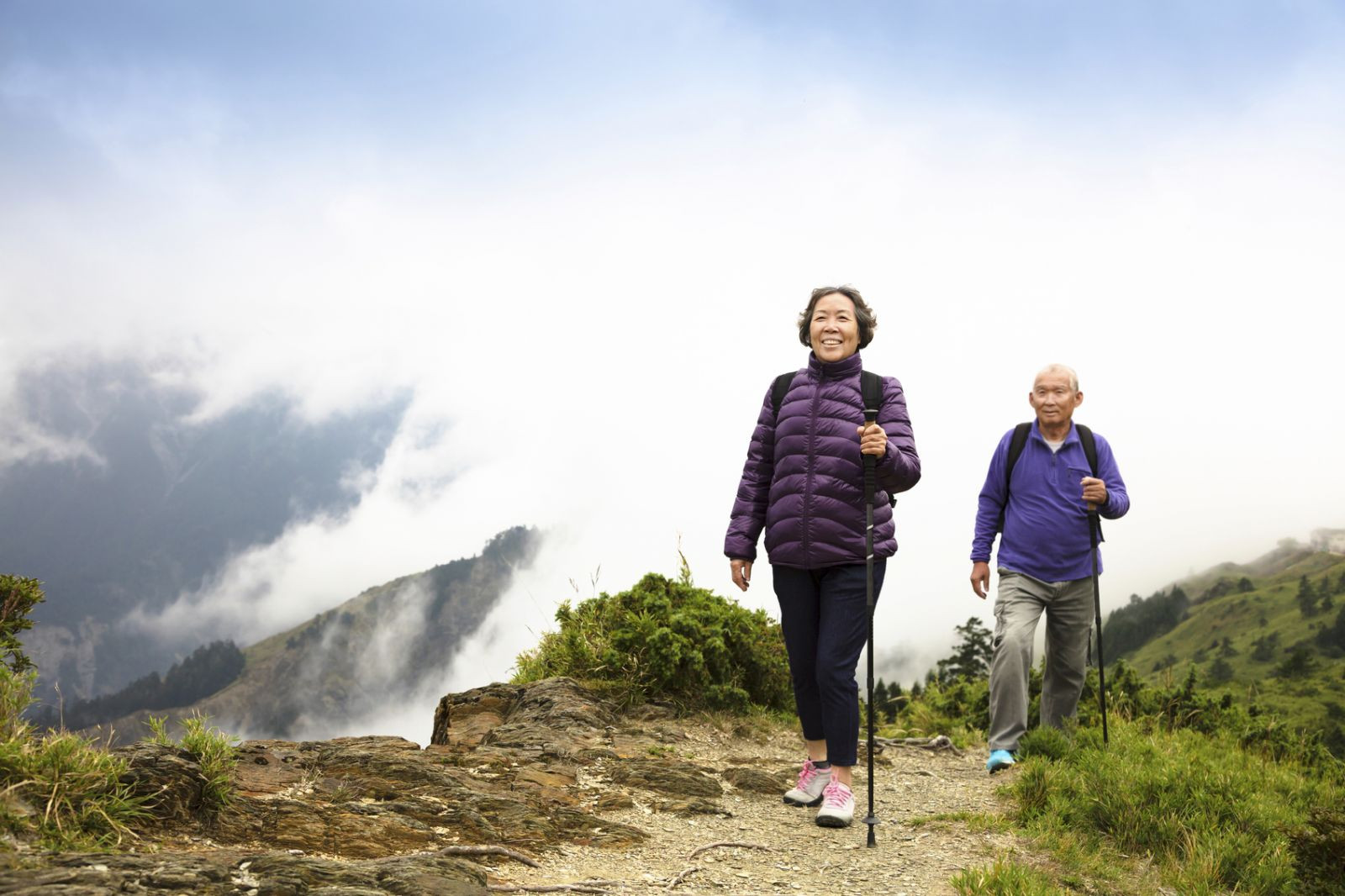
5 timeless habits for better health

What are the symptoms of prostate cancer?

Is your breakfast cereal healthy?

When pain signals an emergency: Symptoms you should never ignore

Does exercise give you energy?

Acupuncture for pain relief: How it works and what to expect

How to avoid jet lag: Tips for staying alert when you travel

Biofeedback therapy: How it works and how it can help relieve pain

Best vitamins and minerals for energy

Should you take probiotics with antibiotics?
Staying Healthy Archive
Articles
The larger role of micronutrients
You may need more of them in your daily diet than you think.
The saying goes that good things come in small packages, and that is especially true when it comes to nutrition.
There are two major classes of nutrients in food: macronutrients and micronutrients. Macro means big, and macronutrients take their name from the fact they make up the bulk of the nutrition in the food: carbohydrates, protein, and fat. These nutrients supply your calories and serve as the building blocks for muscles and tissues. Most people get plenty — and sometimes too many — from a regular diet.
Dive in for joint health
Swimming can keep your joints flexible, reduce stiffness, and increase mobility.
When you were a kid, swimming was no doubt a favorite summertime activity. Now, it may be one of the best ways to keep your older joints healthy.
"As a low-impact activity, swimming places minimal stress on the joints," says Sarah Ellison, an aquatic physical therapist with Harvard-affiliated Spaulding Rehabilitation Network. "The buoyancy of the water allows you to move limbs and joints more easily through their normal range of motion. This helps joints remain supple and improves overall flexibility."
Nutrients from food, not supplements, help you live longer
In the journals
An adequate intake of certain nutrients from food, but not supplements, is linked with a lower rate of death, according to a study in the April 9, 2019, Annals of Internal Medicine.
Researchers looked at the relationship between food and supplements and death from all causes among more than 30,000 adults. The results shows that adequate intakes of vitamin K, vitamin A, magnesium, zinc, and copper were associated with a lower risk of death from cardiovascular disease—but only if they came from food and not supplements.
Bedtime screen time may reduce sleep quality
Research we're watching
Is your smartphone reducing your sleep quality? The National Sleep Foundation's most recent Sleep Health Index found that people who used technology such as phones, tablets, or computers in bed before they went to sleep scored lower on measures of sleep quality than those who didn't. Nearly 50% of American adults polled said they used technology in bed at least once a week, and nearly 30% said they did so every day. Some 21% of adults even said if they woke up during the night they would check their devices before going back to sleep. The National Sleep Foundation says to ensure the best sleep quality, it's best to leave digital distractions for the daytime hours and keep them out of bed.
Image: © Sisoje/Getty Images
Red and processed meats raise colorectal cancer risk
Research we're watching
If your diet is heavy on red and processed meat, it might be time to make some adjustments. A study of nearly 500,000 people published in the April 17 International Journal of Epidemiology found that people who ate red or processed meat four or more times a week had a 20% higher risk of colorectal cancer than those who indulged less than twice a week. Risk of colorectal cancer rose 19% for every daily 25-gram serving of processed meat, which is equivalent to a slice of ham. And for every 50-gram-a-day serving of red meat — equal to a thick piece of roast beef — risk of colorectal cancer rose by 18%. Alcohol was also linked to a higher risk of colon cancer: just a half pint of beer per day increased colon cancer risk by 8%.
But the study wasn't all bad news. A number of foods were associated with a lower risk of colon cancer, including high-fiber selections such as bread and breakfast cereals. But higher fiber intake from vegetables and fruits did not appear to reduce risk.
5 tools to maintain your mobility
A variety of assistive devices can improve balance, provide support, and prevent further disability.
Image:iStock
If you're recovering from an injury or surgery, struggling with arthritis, or having trouble with your balance, your doctor may recommend one or more assistive devices—simple tools that have been shown to prevent falls and injuries and preserve your mobility. Don't let pride or vanity keep you from using them. "Maintaining your mobility—the ability to move easily around your home and neighborhood, stay connected to your loved ones, and remain engaged in the world—can safeguard your independence," says Dr. Scott Martin, associate professor of orthopedics at Harvard Medical School and medical editor of the Special Health Report Mobility and Independence (www.health.harvard.edu/MI).
Once you begin to shop for an assistive device, you may be surprised at the selection that awaits you. Whichever type is recommended for you, you'll need professional help with "fitting," so that you can use it safely and comfortably.
Exercise: Rx for overcoming osteoarthritis
Exercising may be the last thing you want to do when your joints are stiff and achy. But exercise is a crucial part of osteoarthritis treatment in order to ease pain and stay active.
Osteoarthritis is a chronic and progressive disease characterized by loss of the cartilage that covers and protects the ends of the bones where they meet at a joint. Without this protective coating, bone rubs against bone, causing irritation and inflammation. The result is pain and stiffness in the joint and often pain in the muscles and ligaments that surround it.
Why people become overweight
Everyone knows some people who can eat ice cream, cake, and whatever else they want and still not gain weight. At the other extreme are people who seem to gain weight no matter how little they eat. Why? What are the causes of obesity? What allows one person to remain thin without effort but demands that another struggle to avoid gaining weight or regaining the pounds he or she has lost previously?
On a very simple level, your weight depends on the number of calories you consume, how many of those calories you store, and how many you burn up. But each of these factors is influenced by a combination of genes and environment. Both can affect your physiology (such as how fast you burn calories) as well as your behavior (the types of foods you choose to eat, for instance). The interplay between all these factors begins at the moment of your conception and continues throughout your life.
By the way, doctor: Is it okay to take ibuprofen p.m.?
Q. I take ibuprofen p.m. on occasion — maybe once a month or so — to help me get to sleep. It seems to work. Is that okay?
A. Ibuprofen p.m. is a combination medication that contains ibuprofen and diphenhydramine, which is the active ingredient in Benadryl, an antihistamine taken for allergies.
On call: Measuring the PSA Is fasting necessary?
Q. I have always had my blood tests taken the first thing in the morning, before I've had breakfast. We've just moved to a new home and I'll have a long commute to the hospital, so I'd like to eat before I start out. My cholesterol has always been great, so my doctor said a light breakfast won't interfere with cholesterol tests. But he didn't know if eating would change my PSA result. What do you think?
A. At last — a PSA question with a simple, un-equivocal answer: Breakfast will not affect your PSA result, nor will lunch or dinner. In June 2005, doctors proved the point by measuring PSA levels three times over the course of a single day in 80 patients with an average age of 62 years. The samples were obtained before breakfast, after breakfast, and after lunch — and there were no changes in the PSA results.

5 timeless habits for better health

What are the symptoms of prostate cancer?

Is your breakfast cereal healthy?

When pain signals an emergency: Symptoms you should never ignore

Does exercise give you energy?

Acupuncture for pain relief: How it works and what to expect

How to avoid jet lag: Tips for staying alert when you travel

Biofeedback therapy: How it works and how it can help relieve pain

Best vitamins and minerals for energy

Should you take probiotics with antibiotics?
Free Healthbeat Signup
Get the latest in health news delivered to your inbox!
Sign Up









